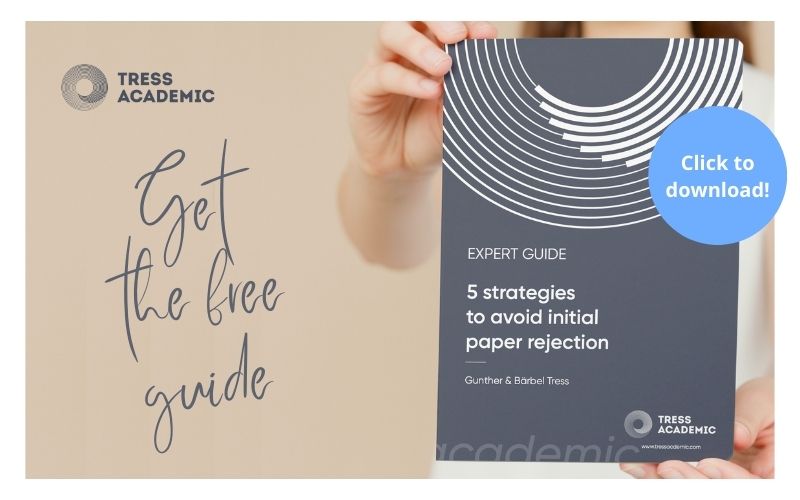(How-we-write series no. 2)
In this post, Nico, a PhD candidate in Glaciology, reports how the COVID19 lockdown has taught him a more satisfying way to write papers. From being scared of deadlines and rushing to write papers in time, Nico changed to a daily writing routine that has helped him to keep up his research productivity while being locked in his home office.
Guest post by Nicolas Stoll
About “horror stories” and THE one question
No matter what stage of the PhD you are at, in conversations with family, friends, or peers, you’ll be prompted by the question “How is it going with your PhD?” It’s usually just a detour to the next question: “Have you written a—or THE—paper yet?” Obviously progress with your PhD is measured by progress with written papers.
Getting papers written was on my mind for a long time. Even before starting my PhD, I heard several “horror stories” from friends and peers. Most of them referred to the growing pressure towards PhD students to write papers within the time they have to complete their PhD. I know how to write, and have written stuff before, but hearing these stories was scary. The stories were about stress, hardship, and many sleepless nights.
Combining scientific freedom and producing output
Thus when beginning my PhD, I made it a priority to start early with paper writing to hopefully prevent these stressful experiences towards the end of my project. I wanted to do it differently and avoid the stress. I wanted to make sure I’d get the papers I needed in time.
But, then there were these moments when I felt ashamed of this attitude. This is not how science should work in an ideal world, right? I should be free to explore the problems I’m interested in, trying out different things, learning, and all the while improving some cool new skills, right? This was what I thought was so fascinating about “doing research.”
After many discussions with fellow PhDs—often quickly coming back to THE question—it became clear to me that writing papers, and maintaining this great freedom and privilege of doing research are not contradictory, but can exist side by side. You can explore your field, learn new skills, AND focus on producing the results you need to progress with your project, your PhD, and your career. Yes, you can do it all!
I learned I had to channel my energy, time, and mental capacity into smaller projects. It meant getting away from the big project that I wanted to address, and breaking it down into smaller chunks of work. It made sense to me, it helped me focus, and put data as well as ideas into my papers. This somehow rational point of view helped me structure my research, and eventually, sit down and write—although the big project wasn’t finished yet. So I had an approach for my PhD wherein I could combine enjoying scientific freedom, satisfying my academic curiosity, while still writing the papers I needed.

And then COVID19 came ….
… and with it a lot of changes and many restrictions. Everything was cancelled or put on hold: fieldwork, data collection, lab work, excursions, meetings . . .we all know it! Much in my research life had changed quickly. Six to eight weeks of fieldwork got cancelled, along with months of working in the lab—so suddenly, I had lots of time on my hands. What I could still do was write! And I wrote a lot during the last year of lockdown.
And on many days, writing kept me going despite the negative circumstances of lockdown. Whenever I felt down and lost motivation, I could come back to my manuscript and add some new lines, edit a few sentences, or play around with the position of figures or tables. I could always come back and write. There was always visible progress, no matter how small. For me, this was very helpful.
How I got there
But I had to find my way of writing first. Lucky for me, I had learned in a writing course how to approach writing, even when the field and lab work is not entirely completed. I know now how to write in small steps, but to come to this insight was not a straightforward process. I tried many things: writing in the morning with a fresh mind, writing whenever I didn’t know what to do next, writing in the evening while having a beer, writing at my desk, in my bed, or in my favourite chair. Taking my mood into consideration, I sometimes wrote in total silence; on other days, I was blasting the same song on repeat for three hours straight. I tried everything to find out what works, and what doesn’t.
While doing this, I learned that there were a variety of options that somehow worked for me. I wanted to identify my perfect writing conditions, but I learned that writing works for me when I do it in small pieces, and it doesn’t matter so much where. But this was a process I had to go through.
The home office: my daily writing lab
The most important lesson I learned during the COVID19 lockdown was how effective it is to apply the rule of writing daily, as I learned in Gunther’s writing courses. Step-by-step progress is always possible. Just write a bit every day, and don’t worry about the amount and quality of the text. It helped me especially during these lonely days in my home office. Writing down my ideas was something positive I could accomplish, and I started to enjoy it and thus to look forward to it.
Writing daily means breaking tasks into smaller chunks and coming back to them again and again to make small but steady progress. This is not only a lesson in scientific writing, but can apply to your PhD in general. There are many days during a PhD when it feels like you don’t achieve anything, but seeing your manuscript grow, slowly but steadily, is very satisfactory!
Writing as a safety net
Suddenly, writing became a safe routine I could rely on when I struggled to continue with other things. If I didn’t know how to solve a specific problem, I sat down and tried to write it up. Writing became a bit of a default option to move forward when times were rough. And there is always something you can write down, no matter if it’s raw thoughts, the methods you use, or the general motivation for your project. There’s always something that can be jotted down on paper.
Last but not least, the smart side-effect of writing is that if somebody comes and asks THE question, you can answer that there is progress—real visible progress written down in digital ink.
Lessons learned from my COVID19-writing sessions:
Start writing, without doing any text editing or “quick” literature research in-between. Don’t worry about grammar, spelling, or the “perfect way” to deliver your message. First, let it flow, and edit later. To get started, make use of journal templates, so you don’t start with an intimidating blank page and procrastinate by formatting the layout or deciding which font to use.
I enjoy the writing process now, and it has become a safe routine for me. If I progress with my papers, I progress with my PhD.
Best wishes
Nicolas Stoll
About Nicolas:
Nicolas is a PhD candidate in Glaciology at the Alfred Wegener Institute Helmholtz Centre for Polar and Marine Research in Bremerhaven, Germany. He mainly works on ice from the ongoing East Greenland Ice Core Project. His research interests include the deformation and flow of ice, and the impact of impurities on the microstructure of ice crystals. You can connect with him on LinkedIn, Twitter and ResearchGate.
Nicolas published the following papers from his PhD work:
- Stoll, N., Eichler, J., Hörhold, M., Shigeyama, W, Weikusat, I. 2021. A Review of the Microstructural Location of Impurities in Polar Ice and Their Impacts on Deformation. Front. Earth Sci. 8:615613.
- Westhoff, J., Stoll, N., Franke, S., Weikusat, I., Bons, P., Kerch, J., Jansen, D., Kipfstuhl, S., Dahl-Jensen, D. 2020. A stratigraphy-based method for reconstructing ice core orientation. Annals of Glaciology 1–12.
About this series:
The idea for the How-we-write series arose from the many individual stories and anecdotes that we’ve heard over the last decade from the students in our programmes. We always found their stories amazing, and now we’ve encouraged some of them to write about their personal experiences and share them in our community. We think there’s a lot to learn from them.
If you have a specific way you write, or any extraordinary experience to share about writing (whether it be rejections or a flat-out acceptance), and have some lessons for others to learn, please be in touch with us at info@tresscademic.com and tell us your story. We’d love to hear from you!
Relevant resources
- Blog post #86: How training the writing muscle became my early-morning ritual (How-to-write series #1)
- Blog post #85: Planning your PhD workday
- Blog post #63: Train your writing muscle: Achieve better results
- Blog post #53: Create your perfect home-office day!
- Blog post #49: 15 steps to get a paper written during the Corona lockdown
More information
Do you want to successfully write and publish a journal paper? If so, please sign up to receive our free guides.
Photograph by Thomas Franke at unsplash.com
© 2021 Tress Academic
